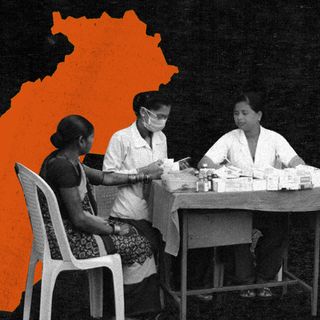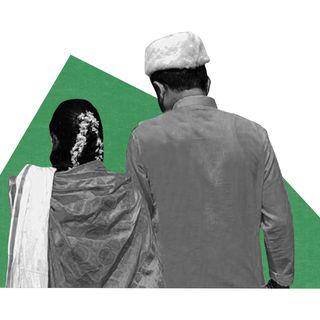The Supreme Court on Wednesday ruled that deaths of people who died within three months of testing positive for Covid19 will be classified as Covid19 deaths. This will increase the scope and number of people entitled to compensation for the death of family members.
The bench, comprising Justices Ashok Bhushan and M.R. Shah, was responding to a petition filed by Reepak Kansal and Gaurav Kumar Bansal. The petitioners sought monetary relief for the families of Covid19 victims and mentioned the need for a simpler process of registering Covid19 deaths.
The court ordered the National Disaster Management Authority to frame compensation guidelines for Covid19 victims within six weeks. The judgment noted that all victims of Covid19 are entitled to a compensation amount. While the petitioners argued for a sum of Rs. 4 lakhs to be paid to families who lost members, the court specified that it could not direct the government to pay a particular amount, and left it to the government’s discretion.
In the same judgment, the court also directed the Union Government to form guidelines for issuing death certificates.
“It is the duty of every authority to issue accurate/correct death certificates stating the correct and accurate cause of death, so that the family members… may not face any difficulty in getting the benefits of the schemes… for the death of the deceased, who died due to Covid19,” the bench stated.
The judgment is significant in the context of underreporting of the official Covid19 toll. Inconsistent standards of registering Covid19 deaths across states have resulted in many families being left out of compensation schemes. Families also face trouble while burying or cremating their loved ones due to difficulties in obtaining a death certificate.
Related on The Swaddle:
SC: Affordable Covid19 Treatment Is a Fundamental Right
The excess mortality — that is, the total number of deaths from all causes during a crisis — has also increased since last year, prompting questions about the criteria used for registering Covid19 deaths.
Currently, Indian states follow very strict criteria for categorizing a death as Covid19-related, despite the World Health Organization’s guidelines urging states to adopt a more liberal understanding of Covid19 fatalities. The bench also noted that the guidelines on recording Covid19 deaths framed by the Indian Council of Medical Research (ICMR) did not account for deaths due to other complications arising out of Covid19.
Experts have argued the official Covid19 death toll may be an undercount. Five states — Andhra Pradesh, Madhya Pradesh, Bihar, Kerala, and Tamil Nadu — saw over 4 lakh excess deaths in the first five months of this year, but the official Covid toll in all these states is significantly lower.
Although the ICMR included a criterion for “suspected Covid19 deaths,” almost no state recorded deaths under this category.
Moreover, official Covid19 death certificates, in most cases, are issued by hospitals. This has also led to problems in private mortuaries, which in many instances have refused to take in the bodies of Covid19 victims without death certificates. Further, bodies may have been brought from homes and not from a hospital.
The apex court’s ruling may help simplify the process by broadening the definition of Covid19 deaths. The bench noted that the state was obligated to provide relief to victims — since the pandemic is officially notified as a disaster. The central government argued that the Disaster Management Act does not oblige states to provide relief; but the court dismissed the argument, noting that Section 12 of the Act does indeed make compensation mandatory during disasters.
“The national authority has failed to perform its statutory duty under Section 12 by failing to recommend minimum relief for ex-gratia assistance,” the court noted.
Further, it directed the authorities to put procedures in place which would help families correct their existing death certificates as per the new criteria, and thereby add Covid19 as the cause of death if applicable.




